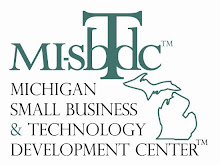The fiscal year 2010 volume is the highest single-year volume in the 50-year history of SBA's Small Business Investment Company (SBIC) debenture program. Increase volume in the program is in part a result of changes made by the American Recovery and Reinvestment Act of 2009. Those changes contributed to an increased number of new SBIC licenses, decreased license processing times, and initial capital to new funds rose dramatically.
"At a time when access to capital was tight, including traditional sources for growth capital, SBA helped fill some of that gap with a record amount of financing through our SBIC program," Mills said. "Across the country, there are small business owners and entrepreneurs who are well-positioned to take that next step, grow their business and create good paying jobs. Our efforts to strengthen our program efficiency and increase funding available through the SBIC program has provided another critical tool to help these small businesses get the capital they need and drive economic growth."
The SBIC program was created to stimulate the growth of America's small businesses by supplementing the long-term debt and private-equity capital available to them. SBA's SBIC fiscal year 2010 results included the following:
- Record High Financing to Small Businesses: Total financings to the SBA SBIC debenture program grew to a 50-year record high of $1.59 billion in fiscal year 2010 - a 23 percent increase over an average $1.29 billion in the four previous years. Debenture program obligations grew to $1.17 billion from an average $750.6 million, another 50-year record high.
- More Licensed SBICs and Faster Processing Times: Twenty-one (21) new SBIC licensees were issued in fiscal year 2010, a 130 percent increase over the four-year average of 10 per year. Additionally, SBIC license processing time improved to just 5.8 months in fiscal year 2010, a nearly 60 percent decrease from an average of 14.6 months in 2009.
- Record High Capital Commitment to Support Small Businesses: SBA capital commitments to new funds broke yet another 50-year record increasing to $1.23 billion in fiscal year 2010, a 135 percent jump from an average of $524.3 million in the four previous years. Equally important, the programs attracted record levels of private capital commitments, increasing to $615 million in 2010 from $262.1 million in previous years- another 135 percent increase. Combined total initial capital to new funds increased to $1.845 billion in FY 2010 from an average $786.4 million.
SBICs are privately-owned and managed investment firms that are licensed and regulated by SBA. SBICs use a combination of funds raised from private sources and money raised through the use of SBA guarantees to make equity and mezzanine capital investments in small businesses. There are more than 300 SBICs with more than $16 billion in capital under management.
Since the SBIC program's formation in 1958 through April 2009, it has invested approximately $56 billion in more than 100,000 small businesses in the United States. For more information about the SBA's investment Division and SBIC program, go to http://www.sba.gov/INV or call 1-800- U ASK SBA











